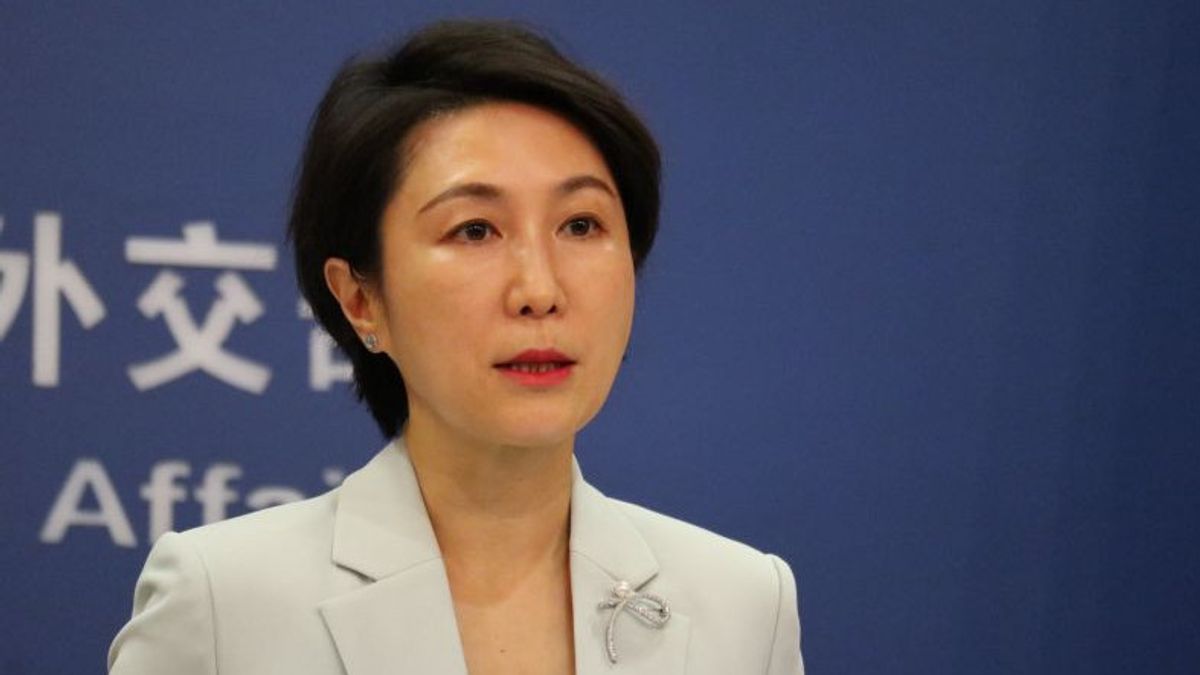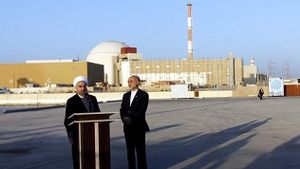JAKARTA - The Chinese government has not planned to stop the ban on importing marine products from Japan after releasing processed radioactive water from the Fukushima Nuclear Power Plant (PLTN) to the Pacific Ocean.
"The precautions taken by China and several other countries in response to Japan's actions are aimed at protecting food security and public health. These measures are completely legitimate, reasonable and necessary," said Chinese Foreign Ministry spokesman Mao Ning when delivering a statement to the media in Beijing, China., Friday, February 23.
The Chinese Customs Authority has banned imports of aquatic products, including aquatics that can be eaten from Japan since August 24, 2023. Based on data from the agency, China imported more than $500 million worth of seafood from Japan in 2022.
This was also done by Hong Kong and Macau. The import ban applies to products from 10 prefectures of Fukushima, Miyagi, Ibaraki, Tochigi, Gunma, Saitama, Chiba, Tokyo, Nagano and Niigata.
"Disposal of nuclearly contaminated water in Fukushima in Japan into the sea has a negative impact on the health of all mankind, the global marine environment and the interests of the international public," added Mao Ning.
Mao Ning said Japan needed to take international concern seriously.
"Japan needs to dispose of nuclearly contaminated water in a responsible manner, fully willing to participate in forming an independent control rule at an international level that is effective in the long term and involves active participation from neighboring Japan and other stakeholders," said Mao Ning.
The goal is to prevent unwanted consequences from disposing of nuclear plant wastewater into the sea.
However, Mao Ning also said that the Chinese government maintains communication with Japanese authorities regarding the wastewater issue.
"As far as I understand, both parties maintain communication regarding the problem of radioactive waste water from Fukushima," added Mao Ning.
Japan began releasing processed radioactive water from PLTN Fukushima Daiichi to the Pacific Ocean on August 24, 2023, with a first stage of disposal of 7,800 cubic meters or equivalent to water that filled three Olympic-sized swimming pools.
In total, Tokyo Electric Power Co (TEPCO) has gradually released 1.34 million tons of processed water waste from PLTN Fukushima until February 2024. TEPCO claims the wastewater is harmless and is very dilute in the sea, then dumped in stages for decades.
SEE ALSO:
Most recently, on February 7, 2024, an estimated 5.5 tons (5,500) liters of radioactive water were leaked before most of the radioactive elements were filtered in state-of-the-art facilities known as ALPS.
Due to the wastewater leak, TEPCO said there were no signs of contamination detected outside the facility. TEPCO also claims there were "no significant changes" in radioactivity monitoring posts around power plants.
PLTN Fukushima was destroyed by a major earthquake and tsunami in 2011, which killed 18 thousand people. The operation to clean up the facility is estimated to take decades.
The International Atomic Energy Agency (IAEA) also said Fukushima waste processed water was harmless after conducting environmental impact surveys, including by taking water and fish samples.
However, China and Russia criticized the disposal of PLTN Fukushima waste and banned all imports of seafood from Japan. TEPCO and other Japanese companies were flooded with critical calls from China after the initial disposal of the waste.
The English, Chinese, Japanese, Arabic, and French versions are automatically generated by the AI. So there may still be inaccuracies in translating, please always see Indonesian as our main language. (system supported by DigitalSiber.id)


















